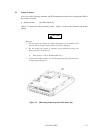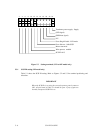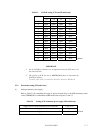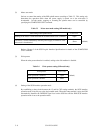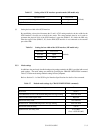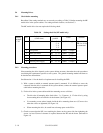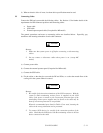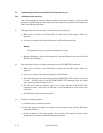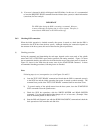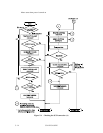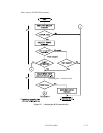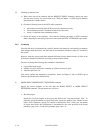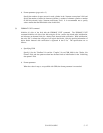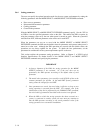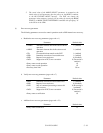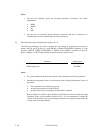C141-E134-01EN 5 - 13
d) If an error is detected in initial self-diagnosis the LED blinks. In this case, it is recommended
to issue the REQUEST SENSE command from the initiator (host system) to obtain information
(sense data) for error analysis.
IMPORTANT
The LED lights during the IDD is executing a command. However,
in same commands, the lighting time is only an instant. Therefore, it
seems that the LED blinks or the LED remains off.
5.6.2 Checking SCSI connection
When the initial operation is checked normally after power is turned on, check that the IDD is
connected to the SCSI bus from the host system. Although checking the connection depends on
the structure of the host system, this section describes the general procedures.
(1) Checking procedure
Issuing the commands and determining the end status depends on the start mode of the spindle
motor and UNIT ATTENTION report mode (specified with setting terminal). Figure 5.4 shows
the recommended checking procedure for the mode that the motor starts when power is turned on.
Figure 5.5 shows for the mode that the motor starts by the START/STOP command. In these
recommended checking procedures, following items are checked.
Note:
Following steps a) to e) correspond to a) to e) in Figures 5.4 and 5.5.
a) Issue the TEST UNIT READY command and check that the IDD is connected correctly
to the SCSI bus and the initial operation after power is turned on ended normally. The
command issue period of the TEST UNIT READY command shall be more than 20 ms.
b) To control starting of the spindle motor from the host system, issue the START/STOP
UNIT command to start the spindle motor.
c) Check the SCSI bus operations with the WRITE BUFFER and READ BUFFER
commands. Use data whose data bus bits change to 0 or 1 at least once. (Example: Data
with an increment pattern of X'00' to X'FF')
d) Start the IDD self-diagnostic test with the SEND DIAGNOSTIC command and check the
basic operations of the controller and disk drive.



